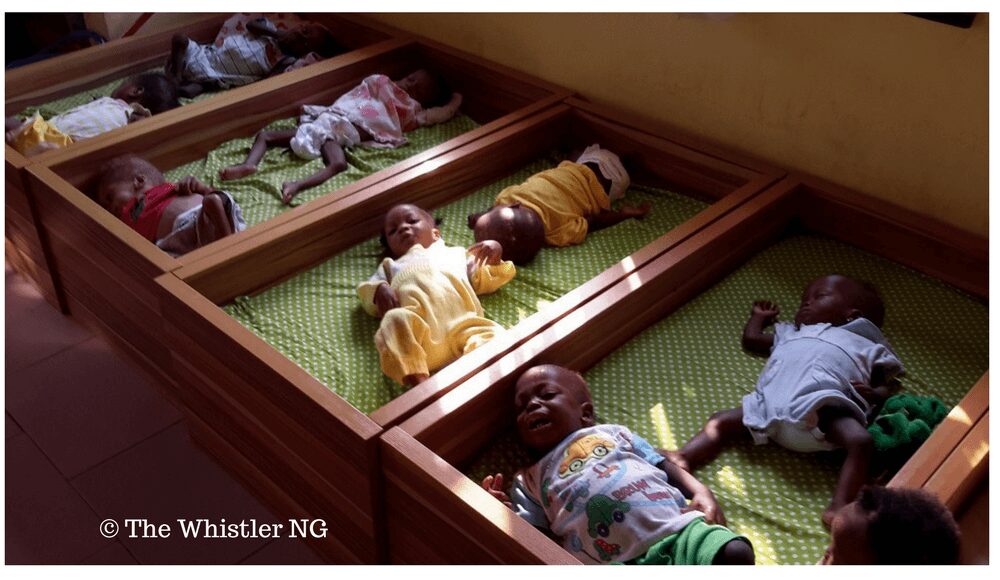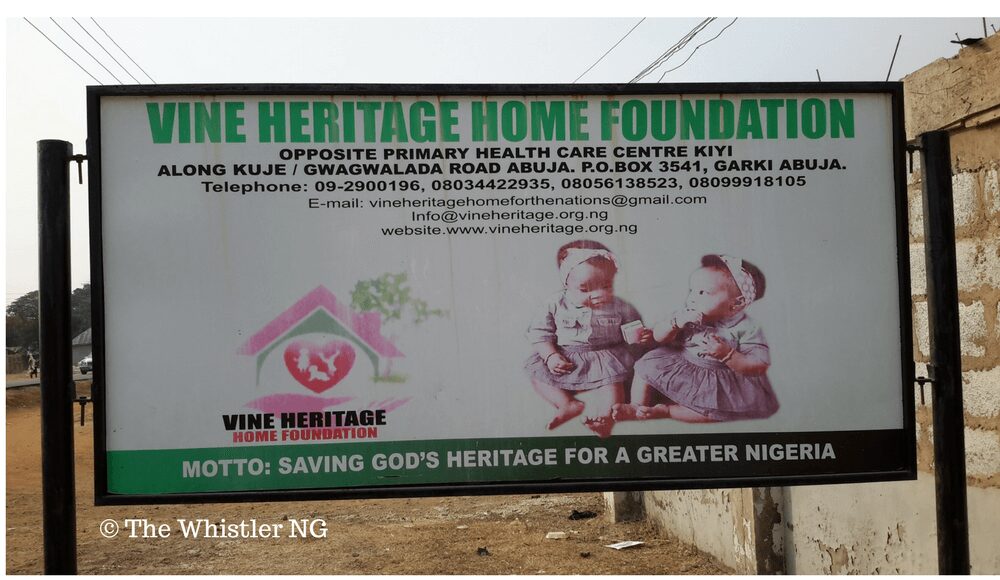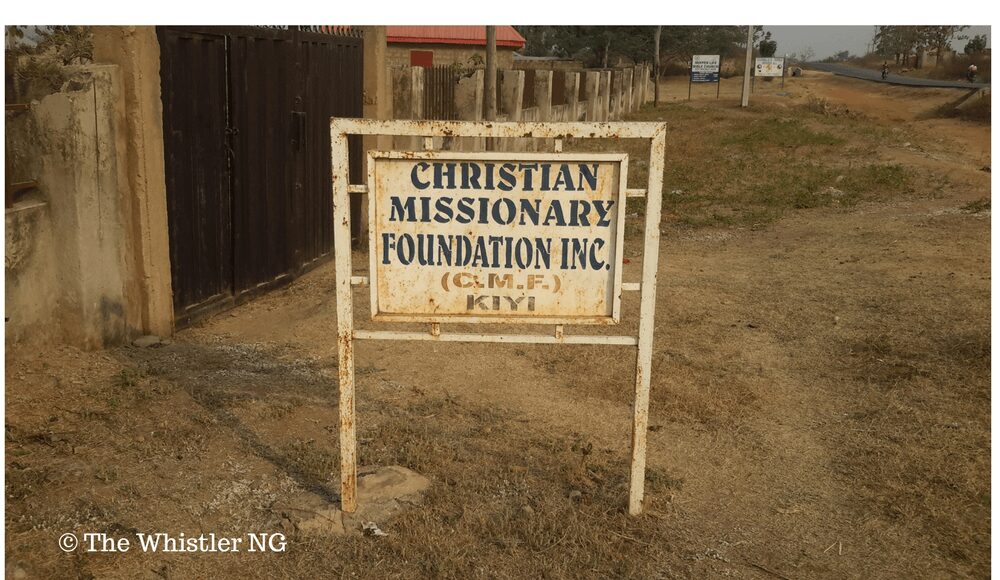Abuja, Nigeria’s capital city was originally home to the Gbagis who were displaced to build the modern city. But the Gbagis and other indigenous tribes are still found in other parts of the Federal Capital Territory where they continue to live their traditional lives and practice their cultural heritage.
Though many of the indigenous people have embraced modern living as a result of the development brought by the emergence of Abuja as the capital city.But despite the westernization tendencies, some weird cultural practices and traditions can still be found in parts of the country.
Advertisement
Such strange tradition is the killing of twins and children with deformities in none other than Abuja, the capital of Nigeria. Twins, albinos and children born with deformities are wrongly thought to be abnormal. Such children are believed to hold evil omen for their families and are slaughtered immediately after birth at an altar found in many of the villages around the Federal Capital Territory.

This practice is common among communities in Kuje, Kwali, Abaji and Gwagwalada Area Councils of the FCT.The practice still occurs in more than 300 communities in these council areas.
The WHISTLER visited Vine Heritage Home Foundation, an orphanage in Kiyi, Kuje area council, where children rescued from these barbaric practices are kept and treated as normal children. Steven Olusola, who runs the orphanage with his wife since 1995, explains:
Advertisement
“Due to cultural practices, multiple births, albinos, children who grow the upper tooth first or have Down syndrome, cerebral palsy or any child born with deformity” are being eliminated because they are thought to possess evil powers.

The Twin Alter was described as a sacrificial point where the lifeless bodies of these ‘mystery babies’ are being offered to some deities or strange gods.
“It is like a curve made of mud on what we call the RUMBU. The Rumbu is the storage for all their foodstuff and harvested crops,” said MrOlusola, the missionary who has been in charge of the orphanage since 1995.
He attested to these practices and decried how the Nigerian Government has failed to address them.
Advertisement
Children born as multiple births, Albinos or with some form of deformities are said to be either killed or left to die on the ‘RUMBU’.
If earlier reports are any indication, some of these so-called ‘mystery children’ are being killed as sacrifice for bumper farm harvests.
Mr Olusola explains that children whose mothers die during childbirth are also believed to be responsible for their deaths.
“The people believe that some of the children are evil because they are born as twins or triplets or because the mother died during childbirth. As such they say it is the children born with evil powers that killed their parents.”
According to the missionary, some of the villagers consider it an “abomination to grow the upper tooth first,” saying babies were usually not allowed to live because they are thought to invite demonic auras.
Olusola and his wife are both missionaries who came to the Federal Capital Territory in 1989 through an organization called the Christian Missionary of Nigeria (CMN).
Advertisement

They have taken the message of Christianity to the interiors of the FCT and planted churches in parts of Abuja through their missionary works since that time.
He and his wife had moved Vine Heritage Home Foundation from Gwagwalada to Kiyi in 1995 when they found that the number of children in their care was growing rapidly.
“We have so many missionaries who have worked here over that period, but for this particular village (Kiyi), my wife was the first person we sent here in 1995 but we were not married then.
“As of 1995, there were no light…no roads in this village. And even to get a vehicle from Gwagwalada to this place was difficult. I remember that we used to trek in those days from Gwagwalada junction to this place because there were no motorbikes as seen today. Except for Kuje market days that a lot of vehicles move from Gwagwalada to Kuje market.”
According to Olusola, the majority of tribes they came in contact with around that time were the “BassaKomos, Gbariamas and the Gana-Ganas”.
He described these people as traditional believers “who worship items, objects, animals and water spirits.”
Some of the people, according to him, assigned names to these deities and some even “make sacrifices to trees.”
The missionary told our reporter that among the three clans of the BassaKomos, the Gbajingala clan is more notorious for the killing of multiple births and other children who are deemed evil.
As missionaries, Olusola and his wife moved around these communities preaching Christianity and bringing civilization to the people.
As part of efforts to change the traditional beliefs of these people, the missionaries started several non-denominational churches which they later cede to poplar denominational churches over time.
“If we start a work and we see a very strong denomination that can help to pastor a place, we invite them as long as they assure us that they will not allow the people to go back to their old way of life.
“So once we hand over, we leave them. We have done so for many several denominations including the Redeemed Church of God (RCCG). For some, we allow the local people to own the churches because that is our style, we don’t own the churches.”
While they’ve helped to end these weird cultural practices in about 8 communities, Olusola does not completely agree that he and his wife were successful in their missionary works because many communities in AMAC, Kuje, Abaji, Gwagwalada and Kwali area councils are believed to still engage in them.
“Before it stopped in those communities, we introduced a series of programs to discourage the acts. For example, we had mobile clinics, we ran short-term training for traditional birth attendants because we discovered that some of the communities where these practices abound, infant mortality is very high.”
He added, “We have raised members who are now pastoring their own people, we no longer pastor them. And not just that, we have also been able to raise missionaries from among the people who came from traditional worshippers and who didn’t only became Christians but have now been sent across Nigeria for missionary work.
“So, in a way, I will say we have achieved success. But when I look at the number of villages that still need to be given our message, I will not agree that we are successful because I will measure it by the number of people we have as Christians in the FCT.”
“If you put those numbers on the entire populace of their tribal people, you will see that it comes to just about 10-15 %, and to me as a missiologist I will not consider it as being successful until we have captured a sizable number,” said the missionary.
Among the six Local Government Areas found in the FCT, only Bwari Area Council was exempted from engaging in these weird cultural practices.
Bwari, which comprise largely of the Koro and Gbagyi tribes, was deliberately left out of the missionary works as they were found not be involved in the strange practices.
With about 292 out of over 300 communities in the remaining five area councils believed to still engage in the cultural practices, many more children risk being killed if immediate steps aren’t taken by the government to save them.
The number of rescued children in Vine Heritage Home Foundation as at the time our reporter visited the orphanage was put at 101.
This count is expected to continue to rise as more villagers continue to take their children to the orphanage for safety purpose.
Meanwhile, Mr Olusola estimates the current cost of feeding the infants and babies below 6 months at N360, 000 monthly. In general, he spends about N800, 000 on foodstuff monthly for the rescued children.


